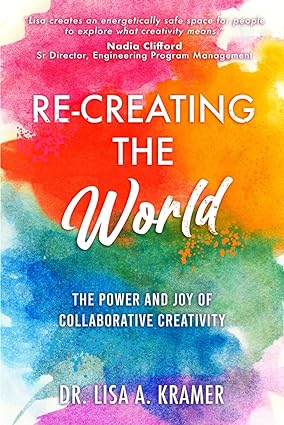Clear Writing Counts
by Lisa A Kramer, in Arts Education
, Theatre
, Writing

We can't all be brilliant writers. Just as we can't all be brilliant mathematicians, painters, doctors, musicians, scientists, speakers, etc., etc.
I get that. The line between basic skills and true talent is a thick one--one which requires training, practice, more training, more practice, a lot of hard work (and perhaps a bit of innate talent).
I'd like to think that--even in a flawed educational system like ours--most people learn somewhere along the way to communicate in basic sentences, and to be able to write those sentences down.
- I like chocolate.
- I wish I had a million dollars.
- I like to write.
Of course, as people move through the education system, as well as they mature in vocabulary and complex thinking, we hope that their writing matures as well. Still, the point is to communicate clearly through words:
- I like rich, dark chocolate.
- If I had a million dollars, I would save some of it, travel with some of it, and give some to a good cause.
- I like to write about many topics.
- In addition to being delicious, dark chocolate has many health benefits.
- While a million dollars may not go far in modern society, with proper planning and wise investments one could take the money, travel, donate to worthy causes, and still have some left to save.
- I enjoy writing about different topics in a variety of genres, including: non-fiction articles on arts and culture, young adult fiction, spooky short stories, poetry, blog posts, and the occasional political rant.
One would hope that, as students move through their educational journeys, someone stops them along the way if they fail to be able to communicate even the simplest sentence. It does nobody any good if students cannot even convey the simplest idea through words, or if the words they choose somehow inhibit understanding.
- Chocolate tintinabulates the taste buds.
- One assumizes that the ownership of millions of dollars will establish the ability to enfranchise oneself in fiscal locations while exploring worlds apart from which one lives.
- One experiences joyousness by placing verbiage into various communicative formats through which one communicates various etymologies of ideas that can stretch across audiences to incinerate discussion.

I realize that the ability to write a clear sentence isn't the only evidence of learning. In my theatre classes I try to provide a variety of options so students can communicate their understanding in ways that suit their needs. If they don't like to write, they can sometimes (not always) present things in other, non-verbal forms. However, sometimes that's not possible. Sometimes I have to assess learning through the written word.
How do I do that if they cannot write?
Because I am both a writer and a theatre practitioner, and because I have taught writing as well as other types of classes, I cannot grade a piece of written work without making suggestions to improve clarity. I establish in the criteria for grading that the work needs to include some focus on good writing, although the majority of the grade will focus on content, analysis, and comprehension. I am very understanding when it comes to students who use English as a second language (although some of them are much better writers than those born and raised in English) or those who have declared learning challenges.
But what do I do with those who have somehow made it through the college system and still cannot convey a simple idea clearly and concisely, with proper spelling and at least an attempt at proper grammar? (I am even okay with the occasional grammatical error, after all I make them myself). How do I deal with a student who is about to GRADUATE but writes me e-mails that are so full of convoluted statements and commas that I have to spend hours of time just trying to glean the simple request? What do I do for students who have made it through the system without learning a single thing about communication? What do I do for students who do the very thing I told them not to do for a presentation (create a power point, read it word for word, and be as uninteresting as you can)?
What do I do with them? I'm not talking about the First Years and the Sophomores (and maybe even the Juniors) . . . the ones who I may still be able to aid in some way by pointing out the errors and challenging them to improve. (I have a few of those). I am talking about the Seniors--the ones taking an introductory level class that they've put off for the 4 . . 5 . . . 6 or more years they've been in school in order to fulfill a requirement. The seniors who are about to walk down the aisle with a degree, either this December or this May, and yet have less ability to communicate clearly than my 10-year-old daughter.
What do I do with them?
Rant over.
